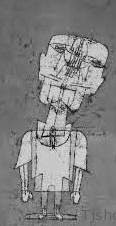here and now
"How is it that there are the two times, past and future,
when even the past is now no longer and the future is now not yet?"
Augustinus, Confessions, Book 11, chap. 14
Meanwhile, we know that in addition to events which happened in our past and events which will happen in our future, there are also events which are space-like (neither in the past nor in the future); And we know that the present is really a single point in space-time.
Of course, there is nothing mysterious about relativity, the math is easy enough that nowadays they teach it in high school, Minkowski diagrams and the Lorentz group as homework exercise.
But still - I wonder about the present and how the activities of my brain fit into a single space-time point when I experience the "here and now" ...
Perhaps I should think more about world lines.
about entropy
"I thought of calling it 'information', but the word was overly used, so I decided to call it 'uncertainty'. When I discussed it with John von Neumann, he had a better idea. Von Neumann told me, 'You should call it entropy, for two reasons. In the first place your uncertainty function has been used in statistical mechanics under that name, so it already has a name. In the second place, and more important, nobody knows what entropy really is, so in a debate you will always have the advantage.'"
Claude Shannon
In order to contemplate the definition of entropy, and perhaps gain an advantage in debates about it, I recommend this article about classical thermodynamics. In section 3 'a one-dimensional classical analogue of Clausius' thermodynamic entropy' is constructed, which dates back to Helmholtz. (The properties of one-dimensional classical gas were previously discussed on this blog here.)
And then there is a pdf file available to this text book
about 'Entropy, Order Parameters and Complexity'.
I found both the article and the book on Cosma's list of interesting links.
world lines
I write this blog post about something I have not really thought and don't know much about.
The Aeolist discusses the Dowe/Salmon causal processes account of causation and raises important objections in my opinion. (see also here)
But I think there is a more fundamental objection: In order to define world-lines one needs a concept of space and time, but how could one determine the properties of space and time and measure distances between world-lines?
One would have to introduce a metric, in other words a field, and quickly end up with (something like) general relativity and its complications.
As the Aeolist already noticed, the introduction of fields "brings along a whole other suite of problems like how to individuate objects and processes on that conception".
Does it really make sense that philosophers retrace the history of physics (and the inconsistencies of its various concepts) from Newtonian particles to quantum field theory just to define terms like 'process' and 'causation'?
Subscribe to:
Posts (Atom)
